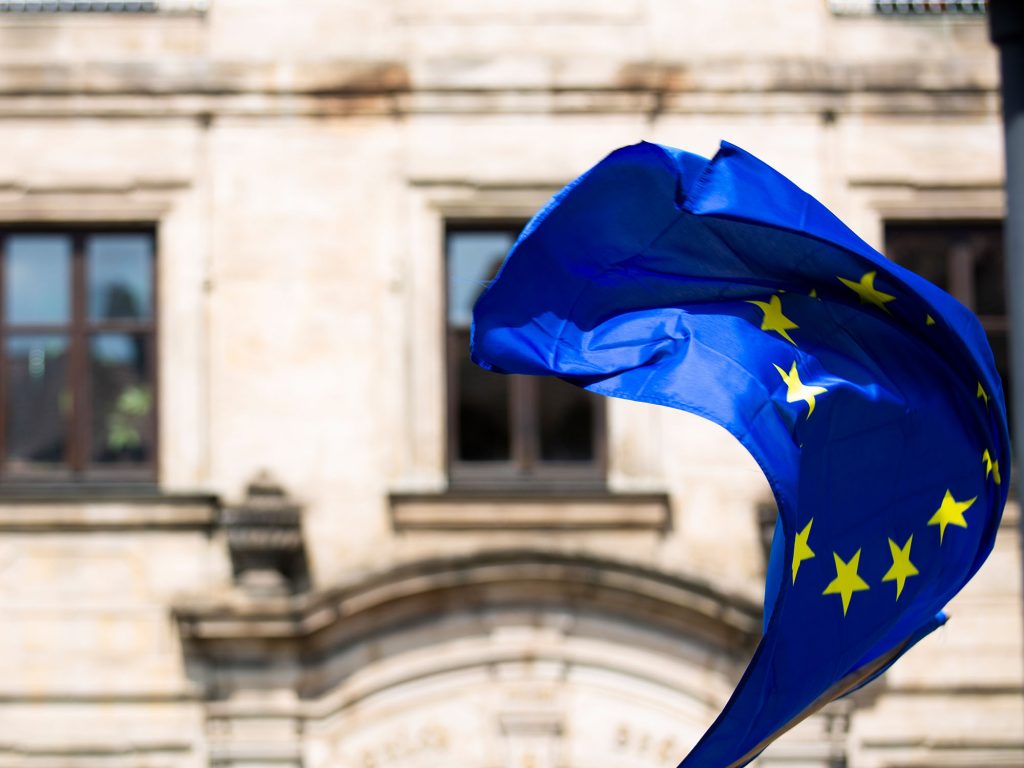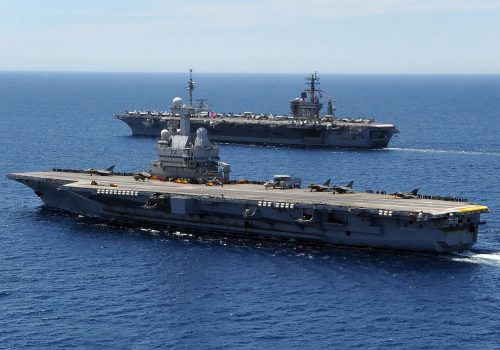As the global community continues to grapple with the coronavirus (COVID-19), the Atlantic Council is open for business. Our business, meetings, and events, however, are occurring virtually. For more information, please read an update from our President and CEO.
On the occasion of the launch of the report “Sovereign Solidarity: France, the US and post-COVID-19 alliances” join the Future Europe Initiative and Scowcroft Center for Strategy and Security for a public conversation about the place of the Franco-American defense relationship in America’s evolving thinking about alliances and partnerships.
In the last decade, the defense relationship between the United States and France – America’s oldest ally – reached new depths thanks to operational cooperation in the fight against terrorism. France’s investments in space and cyber capabilities and its presence in the Indo-Pacific position it to be a critical American partner for maximizing European burden sharing on current and future security challenges. Yet the same attachment to sovereignty and autonomy that underpin France’s unique defense capabilities also make it a complex, frustrating, and sometimes competitive American and NATO ally.
The report, with co-forwards from French Minister of Defense Florence Parly and General James L. Jones (USMC, Ret.) serves as a primer for American decision makers on the capabilities and strategic culture that make France a valuable, but complex ally, and offers recommendations on how to manage the political differences that cause competition and conflict in this turbulent alliance.
In the aftermath of America’s presidential elections, the panel discussion will explore the next chapter in Franco-American security and defense relations. How will recent terrorist attacks in France and competition in the eastern Mediterranean affect France’s foreign policy and the prospect of collaboration with the United States and other NATO allies? How can the next Administration best seek to engage France’s unique capabilities in the Indo-Pacific? Can President Macron’s vision of a more autonomous European Union serve as the basis of a new transatlantic deal on more equal burden sharing, or will it remain a source of continued misunderstanding?
Speakers
Introduction
H.E. Philippe Etienne
Ambassador of the French Republic to the United States
General James L. Jones Jr. (USMC Ret.)
Executive Chairman Emeritus
Atlantic Council
Report presentation by the authors
Olivier-Remy Bel
Visiting Fellow, Future Europe Initiative
Atlantic Council
Jeff Lightfoot
Nonresident Senior Fellow, Transatlantic Security Initiative, Scowcroft Center for Strategy and Security
Atlantic Council
Discussion with key speakers
Alice Guitton
Director General for International Relations and Strategy
French Ministry of the Armed Forces
Dr. Torrey Taussig
Research Director, “Transatlantic Relations 2021”
Harvard Kennedy School
Adm. James Foggo (Ret.)
Distinguished Fellow
Center for European Policy Analysis
Former Commander of US Naval Forces in Europe
Moderated by
Ms. Rym Momtaz
Correspondent, France
Politico Europe

Future Europe Initiative
Providing expertise and building communities to promote transatlantic leadership and a strong Europe in turbulent times.
The Future Europe Initiative promotes the transatlantic leadership and strategies required to ensure a strong Europe.
